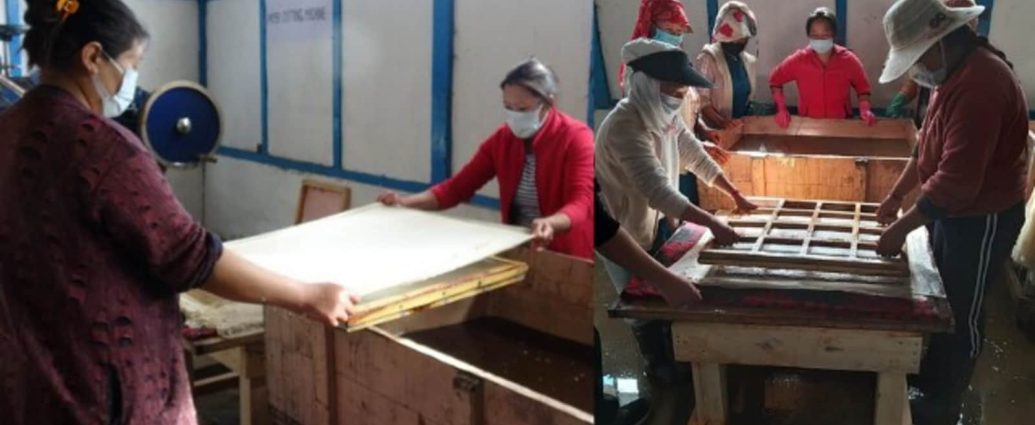For 24-year-old Nima Tsering, the charms of a metropolis where most of his peers from a hamlet in Arunachal Pradesh have migrated in search of greener pastures hold no allure. The preservation and revival of a thousand-year-old paper-making craft of the Monpa tribe are what matters most. The ‘Mon Shugu’ or the paper of the Monpas is sourced from the bark of a shrub called the ‘Shugu Sheng’, which literally translates to a paper plant. It is made in the picturesque Mukto village in Arunachal Pradesh’s Tawang district, but the craft is on the verge of extinction. (Also read: 6 Incredible tribal and folk art forms of India you should know about )
“Few people know about the existence of this fine-textured handmade paper and even fewer can make it. The technique has been passed down in families for generations. There are only four to five households in our village that are engaged in this work,” Tsering told PTI.
The craft has fallen victim to the triple whammy of a small customer base, wafer-thin profit margins, and mass migration of youth, he added. Tsering was part of a group from Mukto still engaged in making Mon Shugu. They were here to participate in the seventh edition of the recently-concluded Northeast Green Summit.
The summit was organised by Vibgyor NE Foundation, a not-for-profit organisation, specialising in green issues of Northeast India, at the North Eastern Police Academy (NEPA) here. Tsering’s neighbour, Sangey Dorjee (57), has been making the Mon Shugu since the age of seven and lamented the lack of awareness surrounding the special paper, which is chemical-free, eco-friendly, and has a long life.
“Buddhist monks and locals in Tawang form the major chunk of our customers. The monks write religious texts on this paper which are then inserted into prayer wheels at monasteries. They only use this paper because it is lightweight and considered pure as no chemicals are used in its making,” Dorjee said.
The father of five said they are finding ways to revive the craft and asserted that things will change for the better in the days ahead.
“We have recently set up the Traditional Paper and Handicraft Marketing Society to reach out to ministers, government officials, and NGOs to help us save this dying tradition,” he said.
“We are also planning to join social media platforms to promote Mon Shugu and also sell our products on e-marketplaces,” he added. Agreed Tsering, the youngest in the group, saying he understood the power of social media and if their product attracts people on Instagram, Snapchat, and Facebook, it could change their fortunes overnight.
“I am very serious about selling our products on social media,” he said, adding that a 10-sheet bundle of A4 size printer-friendly Mon Shugu costs around ₹200 while a one square metre sheet can be bought for ₹50.
“The price depends on the thickness of the paper, the thicker the paper, the costlier it is,” he said, adding that Mon Shugu can be used to make handbags, envelopes, and a base for paintings. However, Dorjee flagged the logistical challenges that might hinder their plans of joining the e-marketplace.
“We have internet in our village but the courier service is available only at the district headquarters,” he rued.
“So, if we get orders, we will have to deliver them at the headquarters which will add to the costs. If doorstep courier service is made available in the village, it will help us immensely,” he said.
Meanwhile, Thinley Gombo (53), stressed that while the governments will do their bit in due course of time, it is imperative for the locals of Mukto village to encourage their young ones to become a part of the paper-making tradition.
“I have two kids and both are studying in Shillong. I have managed to convince one of them to return to the village and join me in making Mon Shugu,” Gombo said with pride in his voice and a grin on his face.
Follow more stories on Facebook & Twitter
This story has been published from a wire agency feed without modifications to the text. Only the headline has been changed.
